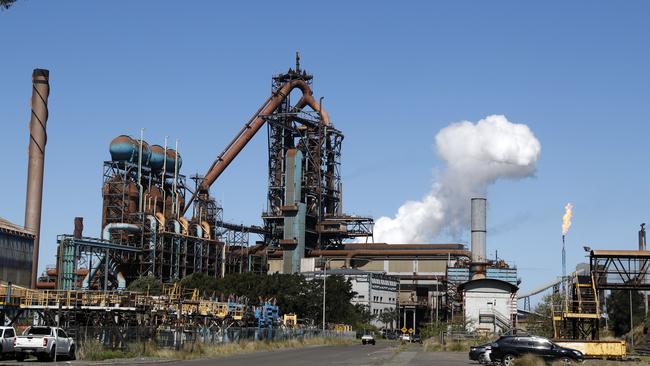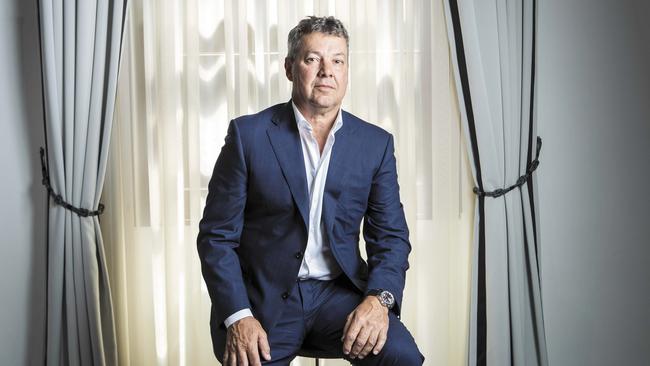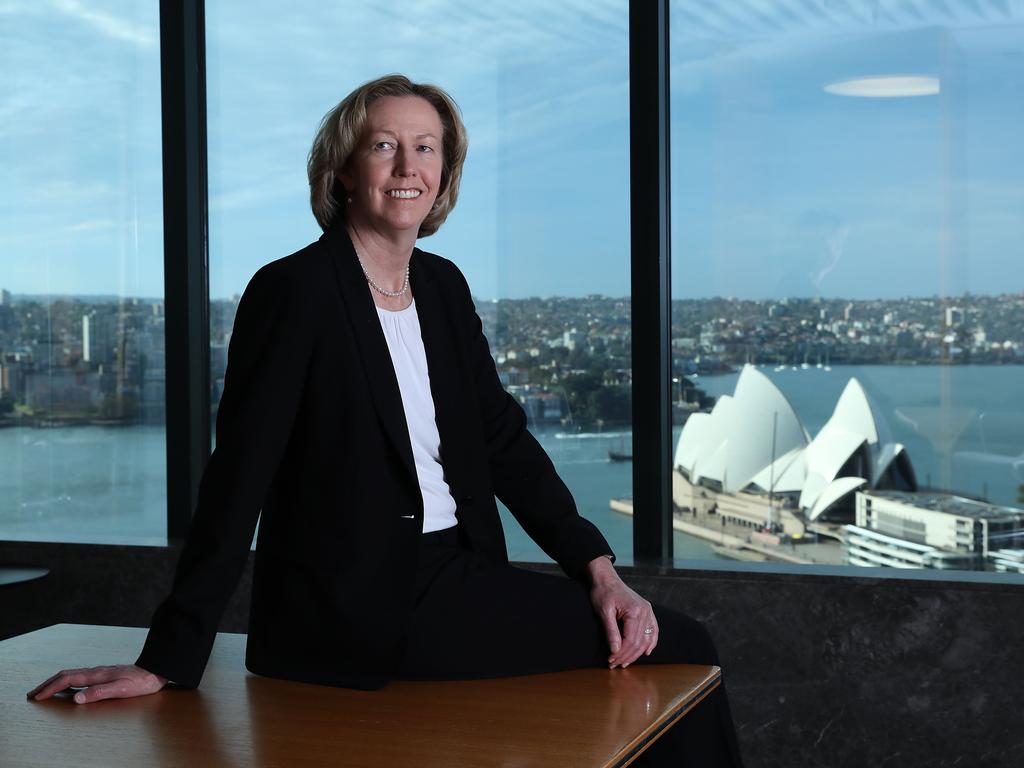BlueScope Steel says it is looking to build on record year as infrastructure spend drives profits
The steel industry’s Covid-recovery surge has fundamentally changed the sector, according to BlueScope Steel boss Mark Vassella.

The steel industry’s Covid-recovery surge has fundamentally changed the sector, according to BlueScope Steel boss Mark Vassella, locking in stronger margins and dividends for years to come.
While BlueScope warned on Monday its record-breaking profits would not last forever, Mr Vassella told The Australian that structural shifts in the global steel industry – including the rediscovery by governments and buyers that sovereign manufacturing capability matters in turbulent times – will help the company lock in better returns to shareholders through the cycle and expand to ensure more consistent profits over the next decade.
BlueScope delivered its best annual profit result since breaking away from BHP in 2002 on Monday, booking a $1.19bn after-tax profit for the past financial year, on underlying earnings of $1.72bn.
And the company says it is on the hunt for growth in the US and Australia, and expects to improve on the past year’s stellar result in the first half of the current fiscal year.
Its underlying EBIT was triple that of the 2019 to 2020 financial year, with BlueScope rewarding shareholders with a 25c per share final dividend, topped up with a 19c per share special dividend.
BlueScope said it would also launch a $500m on-market buyback to return additional cash to shareholders.
Mr Vassella said BlueScope had set a new target of paying out about 50c per share in dividends each year, telling The Australian a structural shift in the global steel industry – as well as the work put in by BlueScope over the last decade to reduce its costs – would underpin better returns for BlueScope shareholders for years to come.
“If you think about the consolidation that’s occurred in the US industry with ownership, effectively all the blast furnaces are now owned by two people, Cleveland Cliffs and US Steel,’’ he said.
“And you think about the imperative that China’s set itself to reduce carbon, and to reduce surplus steel production.
“And then the third overlay I put on this comes back to the overall carbon position, and that’s that anybody who wants to become a steelmaker now needs to think about the capital expenditure of doing it in a decarbonised manner.
“So that I think potentially has the opportunity to perhaps structurally move the margin curve in a positive direction.”

Mr Vassella said the result had put the company in a position to accelerate its growth plans, with the company looking to further expand its US operations, as well as its Australian business.
He said the company would pump another $US200m into its US commercial properties business to help it grow, was weighing a further expansion of its North Star operations in Ohio when the current program is complete, and would look to capitalise on strong demand for its Colorbond and Truecore coated steel products in Australia with a potential $250m expansion of production capacity.
Mr Vassella said BlueScope would also spend $150m over the next five years looking for ways to decarbonise its steel mills, as the Australian steel major committed to a net zero carbon target by 2050.
But the BlueScope boss warned that Australia’s high energy costs meant that investing in the US was still far more attractive than in Australia and New Zealand.
“A rising market covers those sins. And that’s the dilemma, because when the market comes off the high energy costs won’t fall. So what’s masked in our results, because of the high sell price, is energy costs that are still way too high,” he said.
“In a market where selling prices are where they are, a company like ours can cover that. But if you revert to a more normal market, you can’t absorb those costs.
“The relativity of the energy costs that we pay in North America, versus the costs that we pay here in Australia – that drives investment. That‘s why we’re willing to continue to invest in North Star because we’ve got those fundamental cost advantages in terms of gas and electricity.”
But Mr Vassella said BlueScope was still committed to a long-term future in Australia, saying the company’s stellar year had provided a “once in a generation” opportunity to invest in its business to keep it strong, even when the economic cycle shifted demand and steel pricing downwards again.
“We are in Australia now preparing for the blast furnace relining – that’ll be a $700m to $800m investment that we’ll need to make, and making sure that we’re doing the work around what are the future technologies and scenarios around decarbonisation so that we don’t miss that boat,” he said.
“We’re taking advantage of this unusual period where prices are at levels that none of us expected them to get to, so we’re taking that extra cash, and we’re putting it into projects to ensure that we’ve got growth, that we’ve got new market opportunities.”
BlueScope shares closed up 16c to $25.65 on Monday.





To join the conversation, please log in. Don't have an account? Register
Join the conversation, you are commenting as Logout